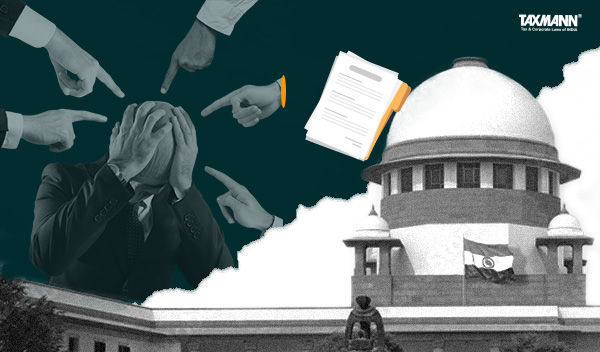Petitioner Can’t Be Held Liable for Dishonour u/s 138 of NI Act as He Wasn’t a Director of Accused Company, Drawer of Cheque | HC
- Blog|News|FEMA & Banking|
- 2 Min Read
- By Taxmann
- |
- Last Updated on 27 February, 2025

Case Details: Sanjay Dhingra v. Woori Bank, Gurgaon Branch - [2025] 171 taxmann.com 525 (HC-Delhi)
Judiciary and Counsel Details
- Amit Mahajan, J.
-
Karan Batura & Jayant Chawla, Advs. for the Petitioner.
-
Rohit, SI for the Respondent.
Facts of the Case
In the instant case, the Respondent bank extended a loan to the company, i.e., ‘KL’. Since ‘KL’ persistently neglected to repay the principal, interest and charges in respect of a loan, a legal notice was sent to ‘KL’ to make an outstanding payment.
Subsequently, the employees of the complainant visited the office of ‘KL’ wherein the petitioner, the managing director of ‘KL’, handed over the cheque for the sum due. The said cheque was issued by ‘D’ and signed by ‘K’, who was stated to be the director ‘D’.
However, the said cheque was dishonoured on presentation and, a complaint was filed under section 138 of the Negotiable Instruments Act, 1881. The Metropolitan Magistrate (MM) vide the order, issued summons to the petitioner for an offence under section 138 of the Act.
It was noted that the cheque had been handed over by the petitioner, who was the director of ‘KL’, but the same was not drawn by ‘KL’ and, the subject cheque had been duly executed and issued by D.
High Court Held
The High Court observed that as per section 138 of the Act, the liability was to be imputed on the person who draws the cheque on an account maintained by them.
The High Court held that since the petitioner was not the director of the accused company i.e., D, who was the drawer of the subject cheque, the petitioner could not be made liable for an offence under section 138 of the Act. Therefore, the impugned order summoning the petitioner and proceedings emanating from the complaint case for an offence under section 138 of the Act were to be quashed.
List of Cases Referred to
- Rathish Babu Unnikrishnan v. State (NCT of Delhi) 2022 SCC OnLine SC 513 (para 14)
- S.M.S. Pharmaceuticals Ltd. v. Neeta Bhalla: (2005) 8 SCC 89 (para 18)
- National Small Industries Corpn. Ltd. v. Harmeet Singh Paintal: (2010) 3 SCC 330 (para 19).
Disclaimer: The content/information published on the website is only for general information of the user and shall not be construed as legal advice. While the Taxmann has exercised reasonable efforts to ensure the veracity of information/content published, Taxmann shall be under no liability in any manner whatsoever for incorrect information, if any.

Taxmann Publications has a dedicated in-house Research & Editorial Team. This team consists of a team of Chartered Accountants, Company Secretaries, and Lawyers. This team works under the guidance and supervision of editor-in-chief Mr Rakesh Bhargava.
The Research and Editorial Team is responsible for developing reliable and accurate content for the readers. The team follows the six-sigma approach to achieve the benchmark of zero error in its publications and research platforms. The team ensures that the following publication guidelines are thoroughly followed while developing the content:
- The statutory material is obtained only from the authorized and reliable sources
- All the latest developments in the judicial and legislative fields are covered
- Prepare the analytical write-ups on current, controversial, and important issues to help the readers to understand the concept and its implications
- Every content published by Taxmann is complete, accurate and lucid
- All evidence-based statements are supported with proper reference to Section, Circular No., Notification No. or citations
- The golden rules of grammar, style and consistency are thoroughly followed
- Font and size that’s easy to read and remain consistent across all imprint and digital publications are applied



 CA | CS | CMA
CA | CS | CMA
